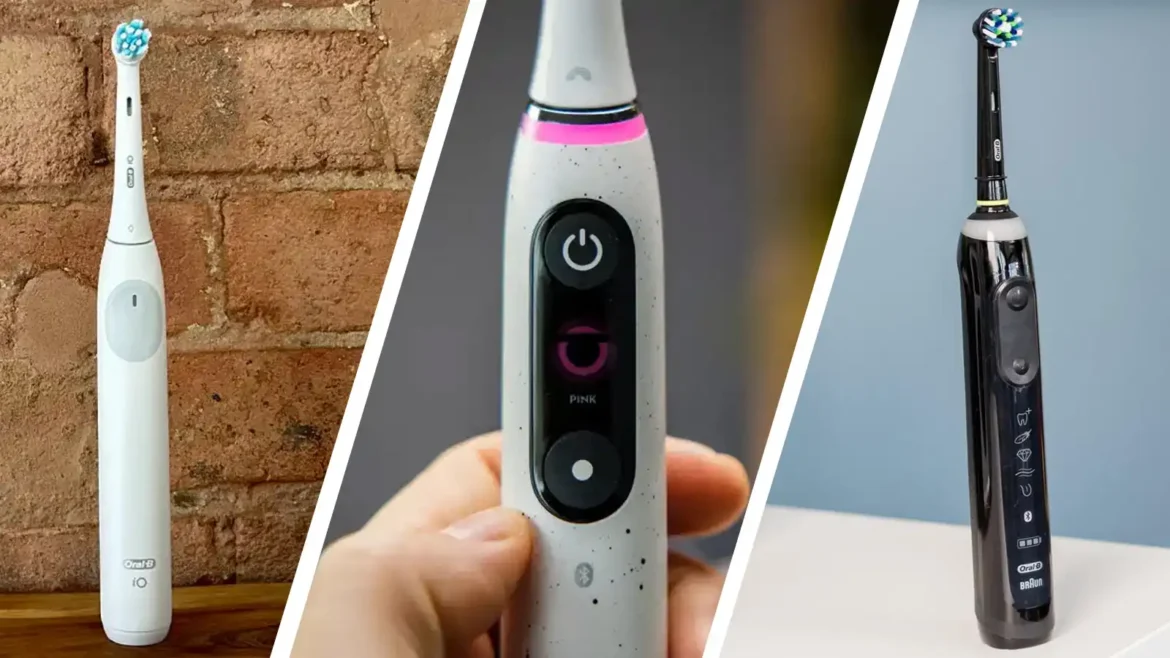Maintaining good oral hygiene is essential for overall health. It helps prevent cavities, gum disease, and other dental issues. While many people use manual toothbrushes, electric toothbrushes are becoming increasingly popular. These high-tech tools not only make brushing easier but can also enhance the effectiveness of your oral care routine. By providing consistent and thorough cleaning, electric toothbrushes can lead to healthier teeth and gums. This article explores what electric toothbrushes are, their benefits, how to choose the right one, and much more.
What is an Electric Toothbrush?
An electric toothbrush is a battery-operated device designed to clean teeth more effectively than a manual toothbrush. It typically features a rotating or oscillating brush head that moves automatically, allowing for a more efficient cleaning action. Many models also have different settings for sensitivity and modes for specific needs, such as gum care or whitening. Unlike traditional toothbrushes, which require manual effort, electric toothbrushes do most of the work for you. This can be particularly beneficial for those with limited mobility or dexterity issues. Overall, electric toothbrushes provide a convenient and effective way to maintain oral hygiene.
Advantages of Electric Toothbrushes
Electric toothbrushes offer several advantages over manual toothbrushes. One of the most significant benefits is their superior cleaning effectiveness. Studies have shown that electric toothbrushes can reduce plaque and gingivitis more effectively than manual brushes. Additionally, many electric toothbrushes come with built-in timers that help users brush for the recommended two minutes. Some models also feature pressure sensors to prevent brushing too hard, which can damage gums. The consistent motion of the brush head ensures a thorough clean, making it easier to reach difficult areas. Overall, these features contribute to better oral health outcomes.
Who Should Use an Electric Toothbrush?
Electric toothbrushes are suitable for a wide range of people. They are particularly beneficial for children who may struggle to brush effectively with a manual toothbrush. The fun designs and colors can make brushing more appealing, encouraging good habits from a young age. Additionally, individuals with braces, dental implants, or other dental work may find electric toothbrushes easier to use. Older adults or those with limited dexterity can also benefit from the ease of use. In essence, anyone looking to improve their oral hygiene can consider switching to an electric toothbrush.
Choosing the Right Electric Toothbrush
When selecting an electric toothbrush it’s essential to consider several key features. Look for options with different cleaning modes to address your specific oral health needs. For instance, if you have sensitive gums, a model with a gentle mode might be ideal. Battery life is another important factor; choose a toothbrush that offers a long-lasting charge for convenience. Brands like Oral-B, Philips Sonicare, and Colgate are popular for their quality and effectiveness. Reading customer reviews can also provide valuable insights into the performance of different models. Ultimately, the right electric toothbrush should cater to your personal preferences and oral care requirements.
Proper Use and Maintenance
Using an electric toothbrush correctly is crucial for optimal results. Start by applying a small amount of toothpaste to the brush head. Place the brush against your teeth at a 45-degree angle and let the brush do the work—move it slowly from tooth to tooth, without pressing too hard. Spend about 30 seconds on each quadrant of your mouth to ensure thorough cleaning. After brushing, rinse the brush head under water to remove toothpaste and debris. Regularly replace the brush head every three months or sooner if the bristles fray. Proper maintenance not only extends the life of your toothbrush but also ensures effective cleaning.
Common Misconceptions
There are several misconceptions surrounding electric toothbrushes. One common myth is that they are unnecessary and that manual toothbrushes work just as well. However, research indicates that electric toothbrushes provide a more effective clean, especially for those who may not brush properly with a manual brush. Another misconception is that electric toothbrushes are too expensive. While they can have a higher upfront cost, many models are reasonably priced, and their long-term benefits can outweigh the initial investment. Understanding these myths can help individuals make informed choices about their oral hygiene practices.
Conclusion
In conclusion, electric toothbrushes offer numerous benefits for improving oral health. From enhanced cleaning effectiveness to ease of use, they are an excellent investment for anyone looking to maintain a healthy smile. Whether you’re a child, an adult, or someone with specific dental needs, an electric toothbrush can make a significant difference in your oral hygiene routine. If you haven’t considered making the switch, now might be the perfect time to explore the options available and enjoy the advantages of modern dental care.




